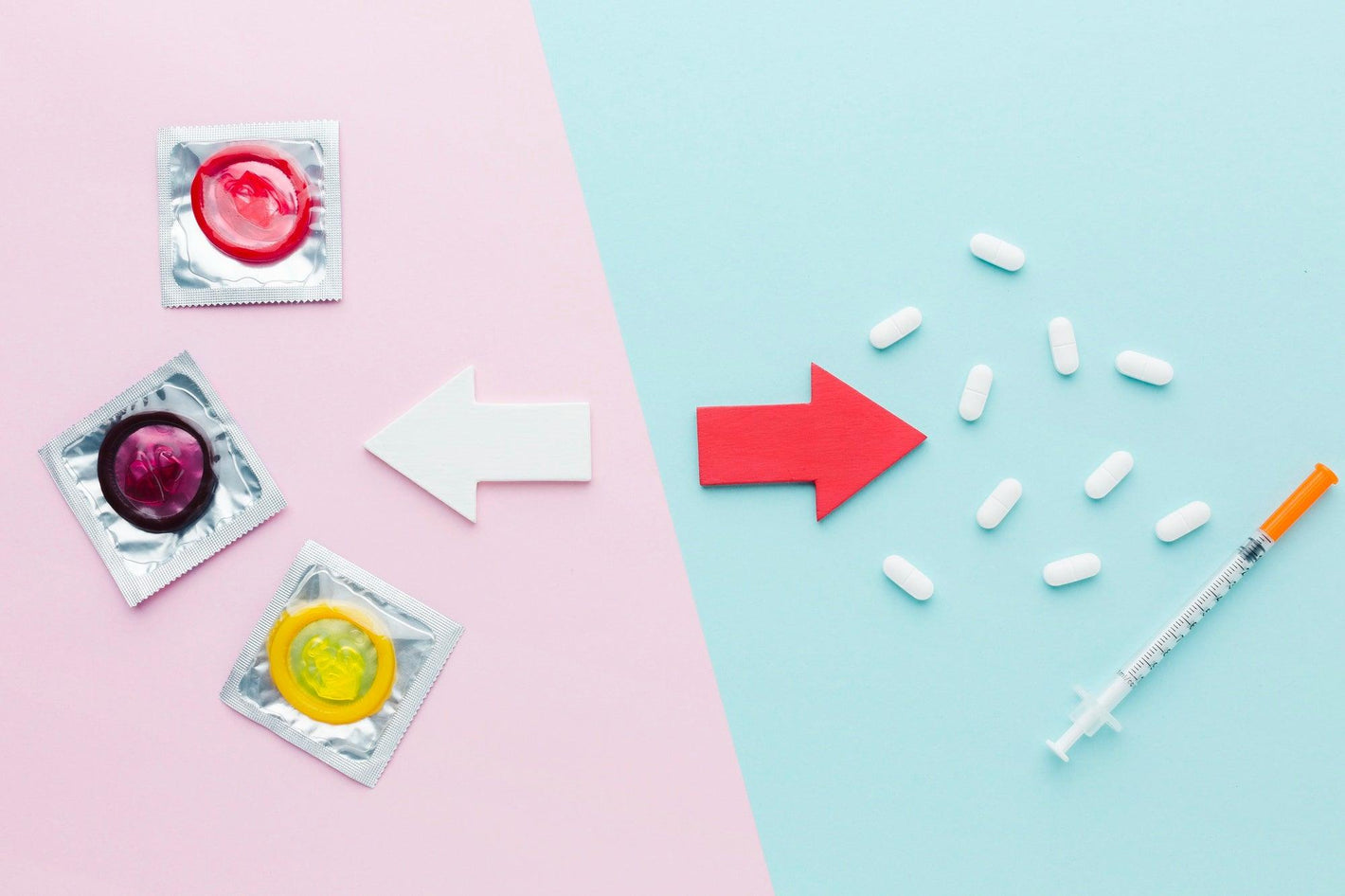What Is The Most Effective Form Of Contraception?


Emergency contraception is a prevention control that you may use to stop unwanted pregnancies following a sexual encounter. These should be taken between 5 days following the contact, but the quicker they are being used, the more efficient they are.
Levonelle must be used within 72 hours after having a sexual encounter.
While around 120 hours after sexual intercourse, ellaOne must be taken.
Both medications function by postponing or delaying the ovulation cycle. To be successful, you should use emergency contraception EC as quickly as possible. Up to five days after unprotected vaginal sex or the latest period, you may have an ovulation test; the IUD could be put into the womb. It can prevent an egg from fertilising or implanting in your uterus.
Sexually transmitted infections (STIs) are not protected by emergency contraception pills (STIs).
Emergency contraception option, like other types of birth control methods, stops you from becoming pregnant. The only distinction is that you may take it after intercourse. Emergency contraceptives are not like prescriptions used to prevent pregnancy. They'll have no impact as contraception if you're carrying. Emergency contraception EC, unlike the drug RU-466, does not cause miscarriages.
Although emergency contraception methods may be effective, they are not regular methods of birth control replacements. Regular birth control is a more effective contraceptive method, has minimal side effects, and is more affordable. The emergency contraceptive pill, as the name indicates, is just for EC methods and should not be used as a regular contraceptive method.
Experts aren't sure how emergency contraception functions, but they often understand it acts distinctively based on the menstrual cycle stage. It also relies on the emergency contraception method you take. If you're concerned about your contraceptive method failing or not being able to access emergency contraception easily, you could be able to receive an emergency pill before having unprotected sex. Most EC pills reduce the risk of unplanned pregnancy; intrauterine devices (IUDs) and ulipristal acetate could also diminish the probability of a fertilised egg implanting and starting a pregnancy.
A development that's already begun cannot be stopped using emergency contraception. In other circumstances, emergency contraception would not interact with or damage a fertilised egg that has already placed itself within the womb. Emergency contraception differs from pharmacological abortion (often known as the "abortion pill"), which uses a distinct set of drugs.
There are two primary forms of emergency contraception (also known as "morning after pill"), which are explained below, and their applications.
1. IUD - An intrauterine device (IUD) may be utilised for emergency contraceptive pills. IUDs are divided into two categories:
Progestin-releasing IUDs - are IUDs that produce the hormone progesterone.
Copper IUD - is hormone-free and prevents pregnancy.
A healthcare professional must put an emergency IUD into the womb. While IUDs are far more successful than pills in preventing pregnancy, they need an annual checkup and will be more expensive initially. They're a fantastic option for folks who wish to use a regular birth control method.
2. Pills - Oral emergency contraceptive pills entail hormone-containing or hormone-interfering tablets.
Ulipristal acetate - Ulipristal acetate (ella, ellaOne) isn't a hormone, but still, it functions by stopping progesterone from exerting its typical influence on conception, and the womb's inside. Ulipristal acetate is only accessible by medication and appears as a single dose.
Birth control pills - Regular birth control contraceptives may be utilised as emergency contraception. This approach is less practical than the others and is more efficient in making nausea, but it may be a helpful alternative in certain circumstances.
Mifepristone - This medicine is accessible in certain countries for contraception but not in the U.S.
Levonorgestrel - Levonorgestrel is a hormone that is produced by the pituitary gland. Many pharmacy shops and clinics, such as Planned Parenthood, sell this sort of emergency contraceptive (brand names include Plan B One-Step and Next Choice One Dose). Depending on the product and dosage, you may need to consume one or two pills. Please read the directions carefully and thoroughly to ensure you understand how many tablets to use and when to consume them.
You should take the first dosage as soon as possible after having unprotected sex and a subsequent dosage 12 hours following the first if you use birth control pills for contraceptives. In the United States, hormonal birth control tablets need a prescription. Ensure you're taking the right medicines and how many pills are prescribed by speaking with your doctor.
There are several viable possibilities. However, the ideal one for you is determined by various factors. Take into account your age: certain over-the-counter medications have age limitations. Furthermore, your coverage may only cover specific kinds. It's also crucial to think about it while you're having intercourse. Some emergency contraceptive pills last for three days, while others last for five days. Your body mass might also play a role. What is the most effective form of emergency contraceptive?
Plan B: The self-sufficiency Step begins to wane in women who weigh more than 165 pounds, according to research, and it isn't suggested for anybody who weighs more than this. Another effective method is to use a copper-releasing IUD. For women with excessive weight, the IUD seems to be more beneficial than pills.
Copper IUDs seem to be the most effective emergency contraception and may also be the best reliable and durable hormonal birth control alternative. A health practitioner should be inserted and withdrawn if you want to have kids.
An intrauterine device (IUD) is a barrier method of contraception that is a small, T-shaped plastic and copper device inserted into the cervix by a medical practitioner. It produces copper to prevent the egg from inserting or fertilising in your uterus. IUD is the most effective EC method in preventing pregnancy.
An IUD prevents unintended pregnancy and may be placed up to 5 days following unprotected sexual intercourse or up to five days after the earliest time you might have ovulated (produced an egg). You could also use the IUD as long-term birth control or regular contraception.

When it comes to women's health, most of them, even HIV-positive women, may benefit from an IUD. A doctor or nurse will inquire about your medical history to determine whether an IUD is right for you.
If you do have an undiagnosed sexually transmitted infection (STI) or a vaginal infection, if you have difficulties with your uterus or womb, or whether you have irregular bleeding during cycles or after sexual intercourse, the emergency IUD may not be suitable for you.
If there's a chance you're already carrying, the emergency IUD will not be implanted.
When you're nursing, it's acceptable to use and won't influence your milk production.
For a full range of medications, visit our Welzo Online Pharmacy Page. We offer contraceptive pills such as Levonelle and ellaOne.
For more details on contraception health, click here.










Plus get the inside scoop on our latest content and updates in our monthly newsletter.